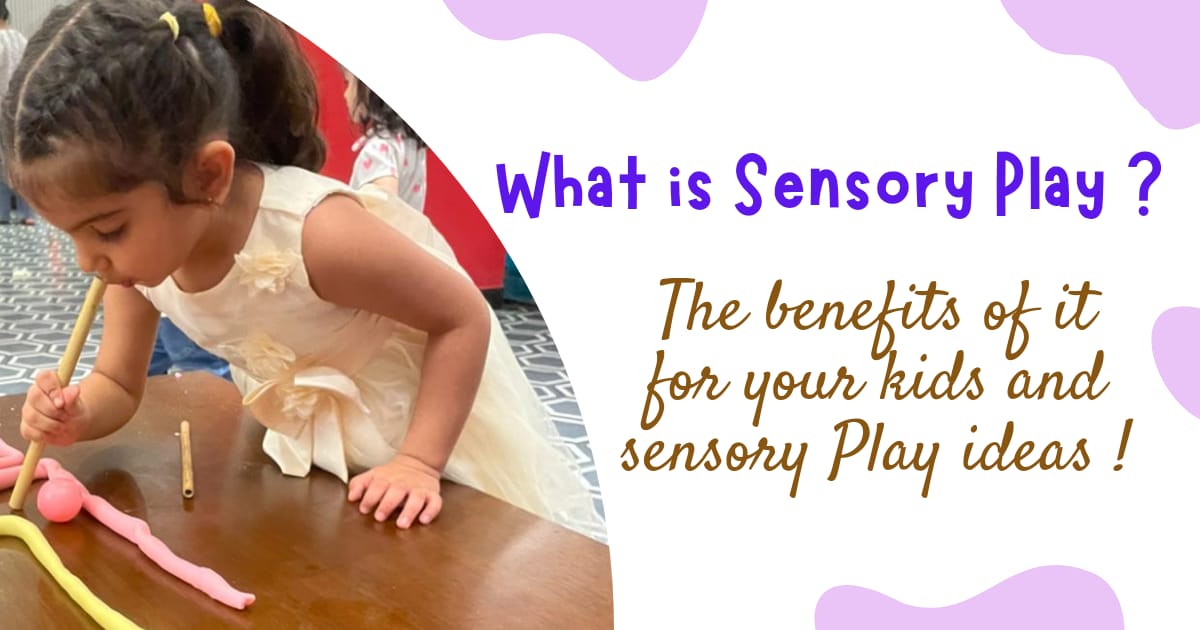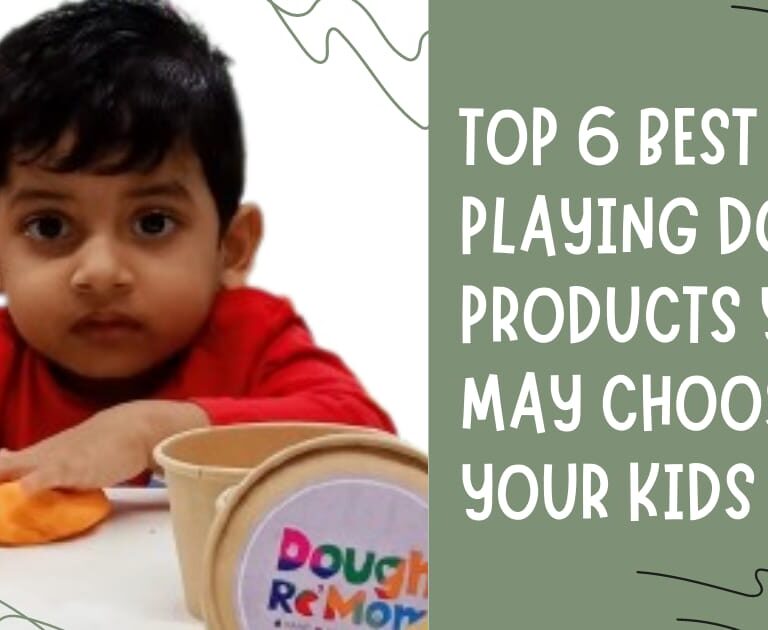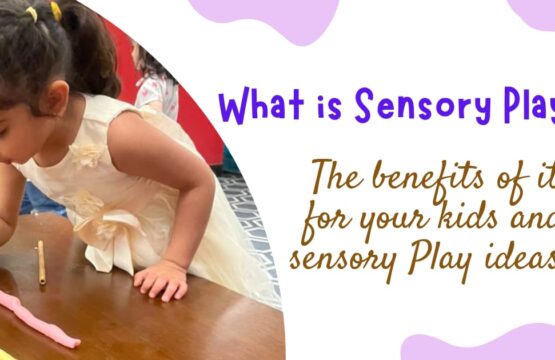What Is Sensory Play? Let us have a deep look into this.
Any activity that engages your child’s senses can be considered sensory play. There are five senses involved in this process: touch, smell, sight, sound, and taste. Additionally, it covers balance, movement, and spatial awareness. In the first few months after birth, a child’s senses haven’t fully developed. During their exploration of the sensory world around them, babies, toddlers, and preschoolers mature only over time. As they experience more senses, their brain architecture grows as nerve connections are formed.
Benefits of Sensory Play For Your Babies
Playing is an essential part of a baby’s development. As it helps them build new connections in their brain. Baby’s development of language is also enhanced through it. Because they learn how to respond to stimuli through sensory play. When babies play with objects and surfaces they can hear the different sounds from the materials. These sounds can make them happy.
Benefits Of Sensory Play For Your Toddlers
Usually, toddlers begin to develop their thinking abilities and begin to do things on their own. Since toddlers are learning concepts such as time and opposites, comparing light and dark, or sorting colors will encourage them to explore these concepts.
Benefits Of Sensory Play For Your Preschooler Kids
The development of language and exploration will often be more independent in preschoolers. This development will be further encouraged by playing and creating with musical instruments. Along with that building with different materials and objects.
Now, take a look at the detailed Benefits of Sensory Play
- It Helps cognitive health – A healthy cognitive development involves different activities. These include asking questions, and thinking about how things work. Also includes conducting experiments, and analyzing results. Learning something new and figuring things out is done this way. As a result, we are able to solve problems. As a child plays with sensory materials, he or she is developing problem-solving skills, according to Messer. The activity encourages the child to try out different experiences. Along with that, it helps to learn how to negotiate the challenges he or she encounters. For example, we can mention, how to get rice from one container to another or how to remain balanced on a swing.
- It helps to improve language skills – Sensory play helps your child develop language skills naturally. Children learn through sensory play. They learn by experiencing their surroundings and expressing their emotions, wants, and needs,” says Messer. Eventually, your child will use more descriptive words by engaging the senses and describing what they’re doing.
Now let us discuss how it helps to improve your kid’s motor skills
- Helps to improve fine motor skills – Playing with sensory items can help your child develop fine motor skills. These activities include tying their shoes, writing, zipping their coats, etc. Sensory play helps to improve fine motor skills in children. It involves manipulating different textures, shapes, etc. And it also involves the objects through play or utilizing a variety of equipment. This equipment encourages independence and encourages gross motor skills.
- It helps to improve gross motor skills – You can help your child develop gross motor skills by teaching them to crawl, jump, and run. These activities use your child’s arms, legs, and core (inside their stomachs). It is important to give your child plenty of time to practice their skills. It may be anything like they are just learning to walk or trying to throw a ball.
Have a look at some more benefits
- It helps to Improve social & emotional development – As children grow, they learn to work together in groups. This is an essential skill for them. It helps them to play with others and interact socially at school, daycare, and other settings. Sensory play provides opportunities for children to safely experiment with their environment. It also includes surfaces, textures, colors, and sounds. These experiences can help children learn how to take turns and share with others.
- Helps to reduce stress – Sensory play helps to reduce stress, anxiety, and anger in children. Let kids explore different textures, smells, and sounds in the sensory table or pouf. Anxious children benefit from having the opportunity to explore their environment with their senses.
- It helps to improve creative learning – Sensory play encourages children to use their imagination and creativity. It helps to explore and experiment with different materials, textures, and colors. This can be done by making beads crawl across the floor, using tweezers to capture small items, or creating alphabet bingo cards.
Examples of some sensory play activities
- Finger Painting – Infants and toddlers will enjoy finger painting, although it might be a little messy. Make prints on a piece of paper with your infant’s hands and feet using a soft brush. Make a cute keepsake out of their prints if you’re feeling creative. Performing this activity can help toddlers express their emotions and relax. Create an area for finger painting with paper and finger paints. If it’s a nice day, do this outside or lay down an old blanket or sheet so the child can work on it. Once they’ve dipped, mixed, and swirled as they like, let them go!
- Playing with play dough – Children enjoy playing with playdough because it is both sensory and educational. Children develop creative thinking when they shape playdough into balls or snakes. Your child’s hand muscles are also strengthened and fine motor skills are developed by squeezing, pinching, and pulling movements
- Playing with food – When your child is playing with their food, do not stop them. Let them do that. A variety of senses can be developed by playing with noodles or dry cereal. Messer says that your child is ready to learn about food at four to six months of age. You can touch food or watch your family members eat.” As they discover texture, taste, and scent, let them taste, squish, and smear.
Conclusion – DoughReMom always encourages sensory play activities for your kids. Our play dough is completely organic, taste safe and is made from natural ingredients. You can make your kid’s playtime more engaging, and more creative. And it also can help them to improve their sensory play activities with our play dough kits.








